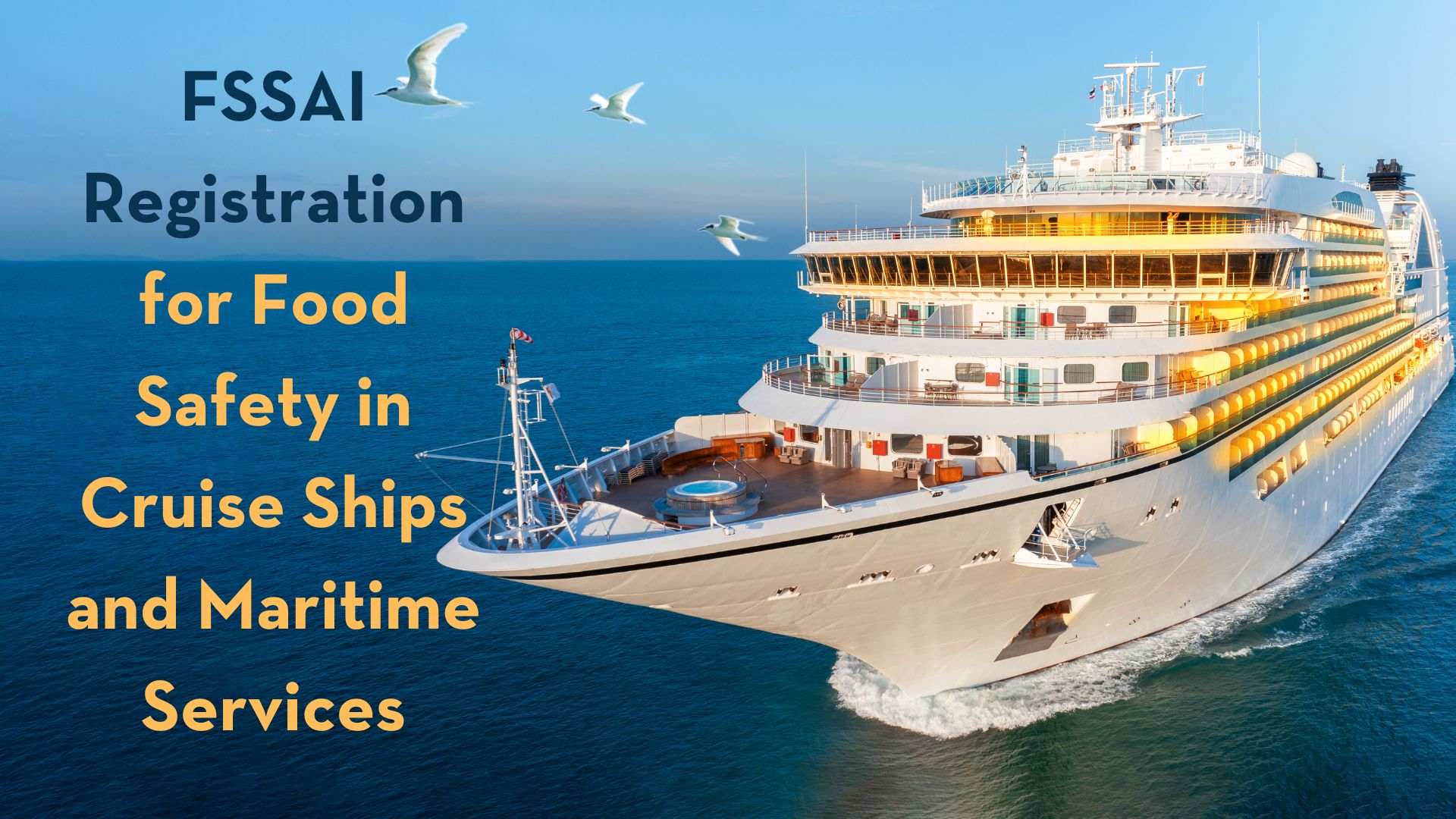Cruise ships, with their luxurious amenities and global itineraries, offer passengers an unparalleled travel experience. A crucial aspect of this experience is the culinary journey that accompanies the voyage. Given the unique challenges of providing safe and high-quality food in maritime environments, the Food Safety and Standards Authority of India, FSSAI Registration becomes an indispensable tool for ensuring food safety on cruise ships and maritime services.
Challenges in Maritime Food Safety:
Cruise ships and maritime services face distinctive challenges when it comes to food safety. These challenges include limited storage space, the need to adhere to international regulations, diverse passenger dietary requirements, and the potential for contamination during extended journeys. To address these challenges, FSSAI Registration becomes a cornerstone in creating a robust food safety framework.
Significance of FSSAI Registration:
The importance of FSSAI Registration in the maritime sector lies in its ability to provide a standardized and comprehensive approach to food safety. Here are key aspects that highlight its significance:
Legal Compliance:
FSSAI Registration ensures that cruise ships and maritime catering services comply with national and international food safety regulations, fostering a culture of legal adherence.
Passenger Safety:
The health and safety of passengers are paramount. FSSAI guidelines for maritime services are designed to mitigate the risk of foodborne illnesses and ensure the well-being of those on board.
Uniform Standards:
FSSAI Registration establishes uniform food safety standards for all maritime services, irrespective of their size or geographic location. This consistency is crucial for maintaining high levels of hygiene and quality.
Catering to Diverse Dietary Needs:
Cruise ships often host passengers with diverse dietary requirements. FSSAI guidelines facilitate the provision of safe and suitable meals for individuals with allergies, religious restrictions, or specific dietary preferences.
Training for Maritime Staff:
The FSSAI mandates training programs for staff involved in food handling, preparation, and service. This ensures that the maritime crew is equipped with the necessary knowledge and skills to maintain food safety standards.
FSSAI Guidelines for Maritime Services:
FSSAI has tailored guidelines specifically for cruise ships and maritime services to address the unique challenges:
Food Storage Protocols:
Given the limited storage space on ships, FSSAI emphasizes proper storage protocols to prevent contamination and spoilage during the journey.
Sanitization Procedures:
Regular cleaning and sanitization of galley equipment, utensils, and food preparation areas are mandated to prevent cross-contamination and ensure a hygienic environment.
Temperature Controls:
Strict temperature controls are enforced for the storage and preparation of food to prevent the growth of bacteria and ensure food freshness.
Hazard Analysis and Critical Control Points (HACCP):
Implementation of HACCP principles helps identify and control potential hazards in the food production process, reducing the risk of foodborne illnesses.
Allergen Management:
Clear labeling of allergens in food items is crucial to ensure the safety of passengers with allergies or dietary restrictions.
Empowering Culinary Excellence on the High Seas:
Access to Government Initiatives:
Once cruise ships and maritime services secure FSSAI Registration, they gain access to a range of government initiatives aimed at promoting food safety and hygiene in the maritime industry. Financial aid, subsidies, and support programs become available, helping these services maintain high standards even in the challenging maritime environment.
Financial Leverage through Regulatory Compliance:
FSSAI Registration provides a competitive edge by ensuring regulatory compliance. This compliance, in turn, facilitates easier access to financial support through various channels, including priority sector lending. This financial leverage becomes crucial for maritime services looking to invest in state-of-the-art equipment, staff training, and technology to enhance food safety.
Incentives for Technology Adoption and Upgradation:
In the ever-evolving maritime landscape, technology plays a crucial role in ensuring food safety. FSSAI guidelines encourage cruise ships and maritime services to adopt and upgrade technology through incentives. Whether it’s implementing advanced food storage solutions or incorporating cutting-edge kitchen equipment, these incentives position maritime services to stay ahead of industry trends.
Enhanced Reputation and Passenger Satisfaction:
FSSAI Registration is not just a regulatory requirement; it is a badge of honor that enhances the reputation of cruise ships and maritime services. Passengers, increasingly conscious of food safety and hygiene, are reassured when they see FSSAI-compliant practices. This enhanced reputation contributes to passenger satisfaction, fostering positive reviews and repeat business.
Streamlined Application Process:
The application process for FSSAI Registration is designed to be streamlined and accessible. This ensures that cruise ships and maritime services can focus more on delivering exceptional culinary experiences and less on navigating bureaucratic hurdles. The efficiency of the process allows these services to maintain compliance without sacrificing operational efficiency.
Note : Now You Can Renewal Food Licence Through Our Fssai Portal
Conclusion:
In conclusion, FSSAI Registration emerges as a beacon of culinary safety in cruise ships and maritime services. By addressing the unique challenges posed by these environments, FSSAI guidelines create a robust framework for compliance and best practices. Cruise ship operators and maritime catering services, by obtaining FSSAI Registration, not only meet regulatory requirements but also demonstrate a commitment to the health and satisfaction of their passengers.

